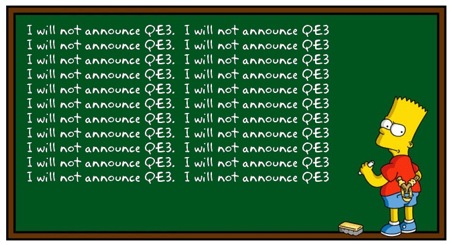That kid to the left looks like he might want to pick a different revolution, but it got me thinking that sometimes the accumulation of small change is sufficient to defeat the forces of tyranny. Just like eating too many jelly beans over time will pack on the pounds.
The purpose of this blog is to educate and advocate for freedom. The forces of tyranny have been very busy during the Obama administration, so I am convinced of the need to make the case for freedom. Many of my friends and fellow SLOBs paint a grim picture of lawless tyranny out of control, with . While I don't deny the myriad and putrid ways in which this administration and the previous one have undermined the rule of law in this country, the march of technology and the impulse to freedom keep eroding the seeming victories of would-be oppressors. Some examples:
- Freedom of speech continues to come under assault, especially on college campuses, as our good friends at Legal Insurrection keep pointing out. But we have never had such a great opportunity to actually make the voices of ordinary citizens and students heard as in this era. Blogs, Twitter, Facebook and other social media allow the citizenry to curb the impulse to suppress speech that is in the hearts of the leftists. Yes, attempts at suppressing speech continue unabated, see Handle's Haus for an impressive compendium of recent efforts. However, the very fact that he can publish the list and link to so many rebuttals is proof that technology is keeping freedom of speech alive.
- While Bernanke and now Yellen have debased the currency and taken money out of your pockets and into the hands of bankers, alternatives to protect your hard earned cash exist. Bitcoin is an example of smart people realizing that the stated inflationary policy of all government issued currency czars erodes the value of your wealth. For a useful explanation of Bitcoin and some of its limitations, see The Economist. While Bitcoin may have fatal flaws, eventually some cryptographic based currency will give fiat a "run for its money." In the meantime, gold has held its value like it has for millennia, see Matthew 2:1-9. A free market in reputable gold coins exists to offset the dangers of paper money.
- The more the oppressors succeed, the more they fail. The ACA is a prime example of course. I have read of doctors who don't take insurance any more and wondered if this is a trend? By accident, I met a pediatrician on a bus trip who doesn't take insurance and said that her practice isn't suffering one bit, as she has lower overhead. As the ACA destroys health insurance, the number of doctors who opt out of the system will cause it to collapse. We have to be ready with our free market alternatives when that happens.
- KT continues to show the myriad ways that the culture contributes to poverty, through single mommy families, in yesterday's post.
- Dean gives out the Walter Duranty Putridity in Journalism Award. Cato agrees with him on the winner, who is? Read the link to find out. Hint: He claims to be "conservative."









